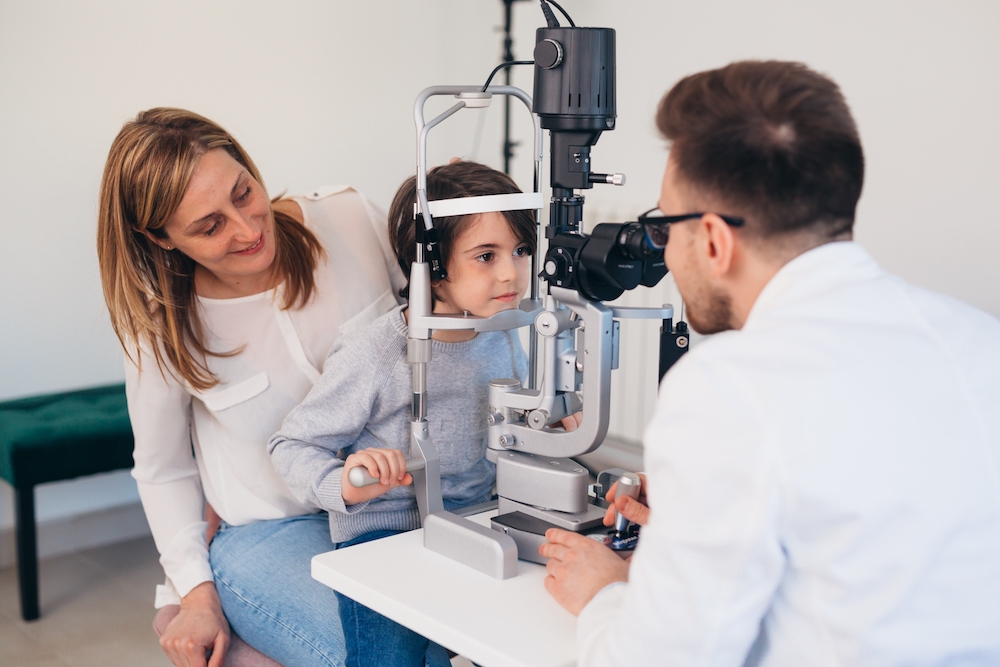
According to eye doctors, your child should first see the eye doctor at the age of six months. A comprehensive eye exam is necessary from birth to age two if there are concerns about an eye problem. This initial exam is also crucial if your family has a history of eye problems.
Usually, children have their first eye tests at the hospital immediately after birth. The doctor does an eye checkup to ensure the eyes' size, shape, and structure look good. Those checkups are crucial screening tests but are not a substitute for a detailed eye exam done by an eye doctor.
Eye doctors use special tools and assessments to examine your child’s eye health and visual skills.
Infant Eye Exams
The first eye exam for your newborn happens right after birth. The doctor examines:
Red light reflex - The doctor swiftly shines a light in the baby's eye and looks for the red pupil, referred to as the red light reflex. The doctor will perform more tests if they do not see the red light reflex. Sometimes, it is a chance occurrence, but the absence of a red light reflex can signal eye problems, such as retinoblastoma or cataracts
Pupil reaction - The pupil usually opens wide in dark spaces to allow more light to enter the eyes and shrinks in bright light to keep excess light out.If your baby's pupil does not enlarge and shrink with light changes, the doctor will need to schedule a further assessment
Blink reflex - Eyes in good physical shape blink when light blazes quickly by them. Failure to bat an eyelid in response to fast light flashes or a snapping finger could signal vision loss or blindness
6 to 12 Months
From 6 to 12 months, a pediatric eye doctor will perform the checks listed above and examine your child's eye structure. The eye doctor will ensure the eyes align correctly and accurately track objects.
An eye exam at this age can detect lazy eyes or crossed eyes. That said, babies tend to have lazy or crossed eyes as their eye muscles and optic nerves develop. Unless your pediatric eye doctor says otherwise, there is no need to worry if you notice a lazy eye or crossed eyes in your little one.
Ages 1 to 2
The eye and vision exams highlighted above continue. Your child’s eye doctor will include a series of tests to examine visual acuity, depth perception, lazy eye, eye tracking, color vision, convergence, and eye health.
Ages 3 to 5
Children at this age are learning to draw, color, build blocks, play ball, and more. An eye exam will check for eye tracking, focusing, teaming skills, depth perception, color vision, and overall eye health. At this point, the eye doctor can diagnose farsightedness (hyperopia), nearsightedness (myopia), and astigmatism.
Ages 6 and Above
A comprehensive eye exam for older children resembles that of younger kids, but the exam goes further to test their visual accuracy skills. Is your child having trouble reading? Are they experiencing frequent headaches after screen time or reading? Eye doctors perform a series of checks to test your child’s visual abilities to rule out or diagnose eye problems affecting their vision.
For more information on when your child should see the eye doctor, contact Highlands Optometry at our office in Wise or Bristol, Virginia. Call (276) 679-5612 or (276) 466-4227 to book an appointment today.






